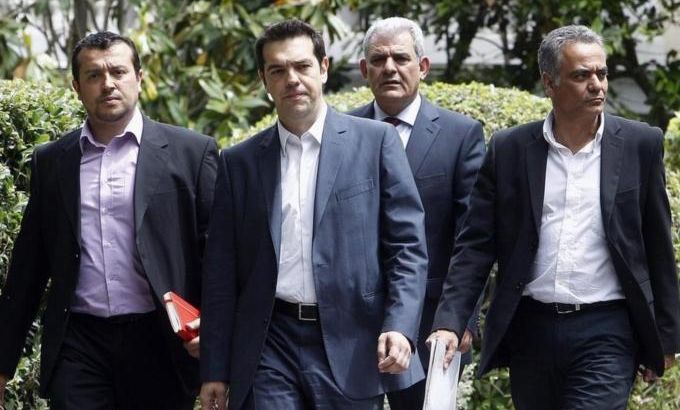Greek far-left leader fails in coalition bid
If no deal is reached by May 19, new elections will be called, amid concerns over country’s possible exit from eurozone.

Greek political parties have failed to form a viable government amid warnings by creditors that a loan to be paid on Thursday could be the last if the country failed to honour repayment commitments.
The warnings came after the leader of the radical left-wing party, who had been charged with forming a government, told international lenders that any cabinet he heads would renege on the terms of the $31bn bailout.
Late on Wednesday, Alexis Tsipras said, however, that he was giving up efforts to form a coalition government.
“We cannot make true our dream of a left-wing government,” he told his Syriza parliamentary group which came second in the weekend election.
“Tomorrow, I shall hand back the mandate given to me by the president of the republic and we shall continue to take part in the constitutional processes,” he said.
It will now be Socialist leader, Evangelos Venizelos, whose party came third in Sunday’s elections, to attempt to form a government.
“I will receive a mandate [to form a government] and continue the national effort,” the PASOK leader said after meeting Tsipras.
‘Quitting’ eurozone
Tsipras had been tasked on Tuesday with forming a government after the conservatives, who secured the largest number of parliamentary seats, failed to hammer out an alliance.
In Brussels, a EU official told AFP news agency that Greece would receive a $5.4bn loan as expected on Thursday, but a further $1.29bn would be held back until Monday.
|
Paul Donovan speaks to Al Jazeera’s Counting the Cost on the future of Greece and the eurozone |
Eurozone officials who met on Wednesday evening “decided to leave the decision on disbursement of [$1.29bn] to the Eurogroup on Monday”, said the source, referring to the eurozone finance ministers.
The political uncertainty pushed markets and the euro down, as fears resurfaced of Greece quitting the eurozone before the year is out.
Should Venizelos fail to put together a coalition, the president would be forced to call on all elected officials to form a “unity” government.
If this cannot be done by May 17, new elections will be called.
Greek parties, meanwhile, have been warning that they might not be able to live up to commitments earlier made to the EU and to the IMF for further budget cuts.
These will be reviewed by its creditors, who will then determine whether to release the next batch of bailout funds that keep Greece solvent.
European concerns
Even the leaders of the outgoing Pasok-New Democracy coalition that signed off on the agreement with the IMF and the EU on March 9 have started to suggest that the deal would have to be reopened.
Such talk has angered a number of leaders in Europe.
Jean Asselborn, Luxembourg foreign minister, said future loans would not be forthcoming unless Greece installed a stable government.
“We have to say to the Greek people right now that the situation is serious, that no European Union country will be able to release even a portion of the 130 billion euros for the Greeks, if there is no functioning government that respects the rules and manages the disbursed money,” Asselborn said in Brussels.
Eurozone finance ministers are due to meet on Monday in Brussels.
Speaking in Berlin on Wednesday, Angela Merkel, German chancellor, stressed that EU countries that have signed the bloc’s fiscal pact for greater budgetary discipline must stick to what they have agreed.
“Everyone must stick to the things we have agreed. Twenty-five countries have already … signed the fiscal pact,” she said in remarks seen as directed at both Greece and France, whose president-elect, Francois Hollande,
has also said he wants to renegotiate the deal.
Wolfgang Schaeuble, German finance minister, said: “If Greece wants to remain in the eurozone, there is no better solution than the path it has already taken.”
Referring to austerity cuts and reforms in return for loans, he said, “You can’t have one without the other.”
Speaking in Athens, Tsipras had earlier said that the result of the election, which decimated the pro-austerity parties, “has clearly nullified the loan agreement and [pledges] sent to Europe and the IMF”.